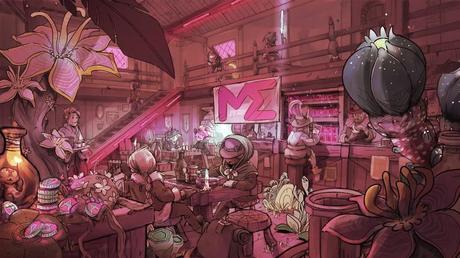
After new competitors cut into its market share, Solana’s top NFT marketplace no longer requires traders to pay creator royalties.
Magic Eden, the most popular place to buy and sell Solana NFTs, said late Friday night that it would no longer strictly honor creator-set royalties on NFTs sold through its platform. It did this because it has been under pressure recently as competitors who don’t pay royalties quickly took away its market share.
“After some difficult reflection and discussions with many creators, we’ve decided to move to optional royalties,” the platform tweeted.Magic Eden also said that during a promotional period, there would be no platform fees. This seems to be an attempt to win back traders.
So over past year, Magic Eden was the most popular NFT market on Solana, with 90% or over of the market share at any given time. The company was valued at $1.6 billion in June, just nine months after introducing its platform, when it promoted $130 million in Series B funding.
— Magic Eden
After some difficult reflection and discussions with many creators, we’ve decided to move to optional royalties on @MagicEden.
Effective later today, we will also begin running a promotion to waive our platform fees.(@MagicEden) October 15, 2022
But in recent weeks, new marketplaces like Hadeswap and Solanart that don’t involve sellers to pay creator royalties on secondary sales have started to cut into Magic Eden’s dominance. This made the platform take action.
The other week, Magic Eden announced that it had teamed up with Coral Cube, another marketplace and aggregator, to allow Solana NFT transactions with optional royalties. On Magic Eden’s own marketplace, full creator royalties are still in place.

On Thursday, Magic Eden’s Head of Marketing and Content, Tiffany Huang, told that the Coral Cube collaboration was made to “protect the Magic Eden brand while serving traders” and that the marketplace “has always been proud to be deeply creator-centric.”
However on Friday night, Magic Eden tweeted that it had altered its mind and would follow the growing trend of Solana marketplaces that let users opt out of paying royalties to artists and creators of NFT projects.
“This is not a decision we take lightly. We understand this move has serious implications for the ecosystem,” Magic Eden tweeted. “We also hope it is not a permanent decision. Today, royalties are not enforceable on-chain. We welcome and hope to see new standards that protect royalties.”
Magic Eden has declared a hackathon to encourage Web3 builders to create NFT technology and standards that can make creator-set royalties fully enforceable on-chain. Magic Eden will have prizes worth up to $1 million, and one of the judges is Solana co-founder Anatoly Yakovenko.
In most transactions on an NFT marketplace, the buyers pay the set royalty fee to the person who made the project. Magic Eden, on the other hand, has taken a different approach. In each transaction, it is up to the purchaser to decide whether or not to pay the royalty. By letting people not pay the royalty, it’s more like a tip to the person who made the work.
As of Thursday afternoon, zero-royalty and royalty-optional marketplaces had taken a big bite out of Magic Eden’s market share, which was 58% over the last 24 hours and 61% over the last week, based on the total volume of Solana NFT trades.
Following declaration on Friday, it looks like traders are already coming back to the platform. Data collected by the NFT marketplace Tiexo shows that 86% of all Solana NFT trades in the last 24 hours were made on Magic Eden.
Magic Eden’s choice to make royalties optional and temporarily cut its own marketplace fees has led to an unintended result: a sudden rise in wash trading, in which a user trades NFTs back and forth between controlled wallets at prices that are much higher than what the market would suggest.
No one to blame for this other than @MagicEden
— stainxii (@StainXii) October 15, 2022
Single handedly turned the largest Solana NFT marketplace into a laundromat.
Happy "Wash-Trading" ya. pic.twitter.com/FRuqu31OuC
It’s been said that project founders and backers have done this to try to increase the tracked trading volume of their projects. This would move them up in the sales rankings and could give them so much exposure. OpenSea, a competing marketplace that still pays creators royalties, said on Saturday that it would temporarily stop such as Solana NFT projects on its total market-wide leaderboard because it looked like the projects were being manipulated.
People have had a lot of different reactions to Magic Eden’s announcement, which is in line with how divided the royalties debate was in the weeks and months before it made its decision. Many Solana NFT traders made fun of Magic Eden on Twitter for its sudden change of heart after fighting back against competitors who didn’t pay royalties.
Leave this field empty if you're human: